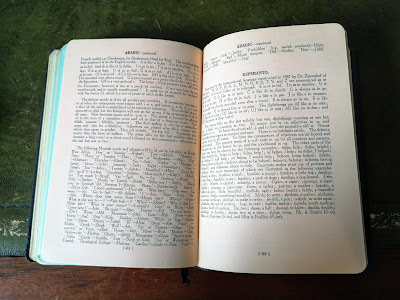Please enjoy this nice linguistic observation made by someone on twitter:
The pronunciation of “plantain”
— Sean Daley (@daleyvibes) December 17, 2021
When a word has the suffix “-tain” it’s pronounced ‘tayn’ when it’s a verb, and ‘tin’ when it’s a noun
Verb: contain, maintain, entertain, ascertain, pertain
Noun: captain, fountain, curtain, mountain… plantain https://t.co/jXv6BEGSsN
We'll deal with the minor quibble first: –tain is not a suffix in most of these words. For it to be a suffix, it would need to be at least somewhat productively affixable, and really it's just in these words as a remnant. In the verbs it's what we might call a 'bound base', as it comes from Latin tenere 'hold', so contain is 'hold with', maintain is 'hold in the hand', entertain is 'hold together', and so on. In the nouns it's more just an accidental similarity in that mountain, fountain etc come from French words montaigne, fontaine, etc. Plantain comes from Spanish plátano.
So, not a suffix per se, but nevertheless, the observation seems to hold. The author of the tweet even provides the exception that proves the rule: bloodstain isn't pronounced like 'tin', but it's also not got the morpheme –tain (as it's part of stain).
It fits with other noun/verb pronunciations, such as the stress difference on record depending on whether it's a noun (play a REcord) or a verb (reCORD the show). I listen to a lot of knitting podcasts and I've noticed this with repeat, which I would always say with final stress, which I put down to the fact that it's normally a verb. But it can be a noun, in knitting, as your pattern may have a certain number of repeats. While I would still give this final stress, quite a few of the podcasters (all American English, though I'm not sure if that's relevant) will say REpeat with initial stress when it's a noun.
Our –tain tweeter is making a point about the pronunciation of the final example, plantain, which white people typically say with the 'tayn' version while Caribbean or West African people pronounce it 'tin', so it also functions as a helpful mnemonic in that sense and I for one learnt something here and haven't said it 'tayn' since.






/cdn0.vox-cdn.com/uploads/chorus_image/image/39220608/the-simpsons-moes-tavern-gay-bar.0.jpg)
